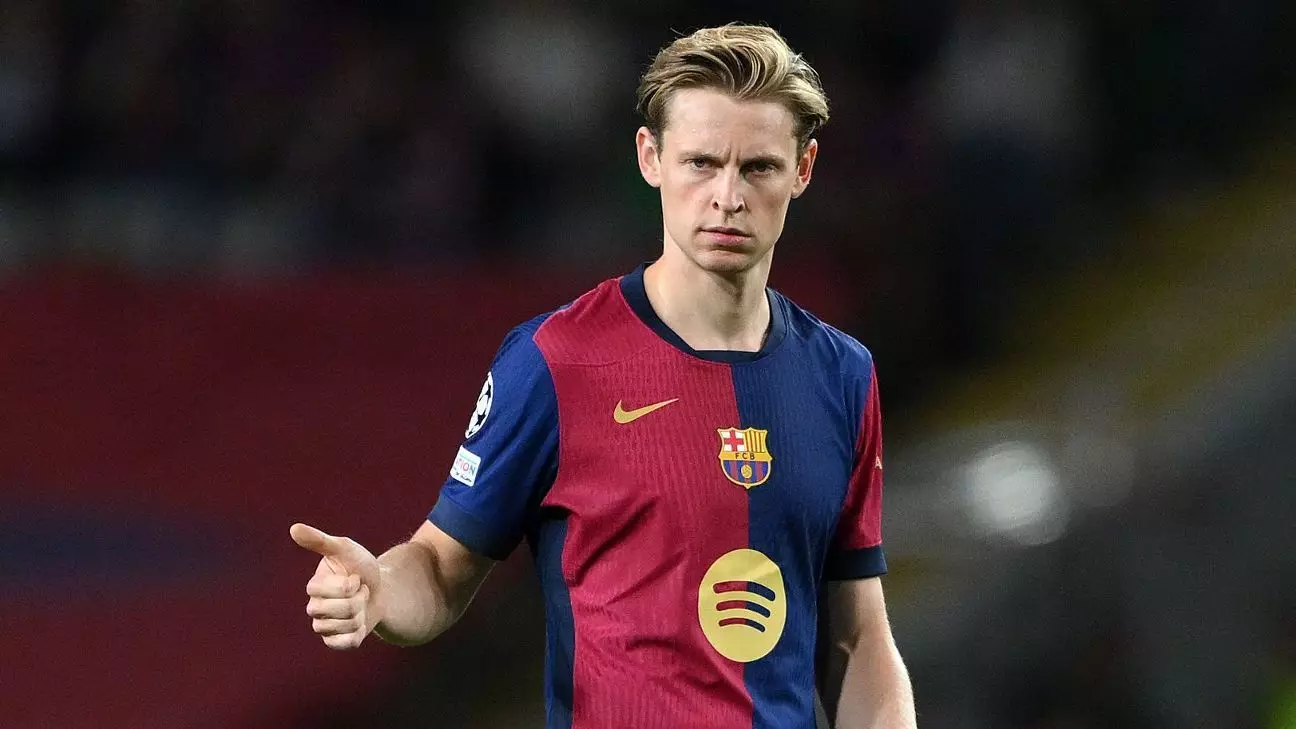Frenkie de Jong’s return to the FC Barcelona pitch on a recent Tuesday was marked by immense anticipation and excitement, not just for him but for fans and teammates alike. After nearly five months on the sidelines due to a significant ankle injury sustained in a Clasico against Real Madrid back in April, the Dutch midfielder made a memorable comeback by stepping onto the field in the 75th minute of Barcelona’s resounding 5-0 victory over Young Boys in the UEFA Champions League. His absence had been felt deeply, not only in terms of his contributions on the field but also in the overall morale of the team.
The anticipation surrounding de Jong’s return showed just how integral he is to Barcelona’s ambitions this season. Missing out on pivotal matches, including the European Championship, raised doubts and spurred scrutiny from local media as they scrutinized both his recovery timeline and financial compensation. This pressure seemed to weigh on him, as he openly acknowledged the emotional toll his lengthy recuperation had taken.
Post-match, de Jong expressed gratitude for the warm reception he received from fans upon his return. “I am really happy with the win and, personally, to be back playing,” he stated, highlighting the unpredictable nature of a player’s reception after a long absence. The supportive atmosphere amplified his emotional comeback, reinforcing the vital connection between players and supporters—something few in football can take for granted.
Beyond the personal satisfaction of rediscovering his place in the squad, de Jong reflected on the team’s performance over the early games of the season. Barcelona has been showcasing strong form, and the midfielder is keen on maintaining this momentum. His perspective is rooted in a collective ambition to improve and adapt as the season progresses, illustrating a camaraderie that is crucial for any team’s success.
As a player known for his versatility and skill, de Jong’s return prompted questions about his fit within manager Hansi Flick’s strategy. When queried about accepting a role from the bench, he reaffirmed his commitment to the team’s plans: “It depends on the coach. He picks the team and who plays, and I’m going to give everything I can.” His willingness to adapt showcases not only professionalism but also a selfless attitude vital in a competitive sport where player egos often clash.
In the context of team dynamics, this flexibility can prove to be a game-changer. With the likes of Ansu Fati also rejoining the team post-injury, Barcelona is enhancing its depth and offensive options. Flick’s decision to rotate players and mix formations promises to keep opponents guessing, which is critical in high-stakes competitions like the Champions League.
De Jong’s recovery journey was undoubtedly a challenging endeavor filled with “some low moments.” His candor about this struggle adds a human touch to the sporting narrative, revealing how personal ailments extend beyond physical pain. This phase can often lead to introspection and growth, an experience many athletes know all too well. By acknowledging the difficulties faced during rehabilitation, he encourages a narrative that respects the mental as well as the physical obstacles in pursuing a career at the highest level.
As the team adjusts to incorporating returning players, the clarity of their roles will be crucial to maintaining coherence on the pitch. Flick’s strategic adjustments, coupled with de Jong’s initiative to embrace whatever role is assigned, could herald a period of renewed strength for the squad.
Barcelona’s emphatic victory, where Robert Lewandowski emerged as a standout performer with two goals, serves as an encouraging indicator of the squad’s potential. The contributions from players like Raphinha and Iñigo Martínez further cement the notion that Barcelona is poised for a strong season, despite earlier setbacks.
The challenge now lies in consistency—turning a solid performance into a series of victories will be paramount. De Jong’s enthusiasm to contribute, combined with the solid foundation already established by his teammates, brings a sense of optimism as the campaign unfolds. The journey ahead is filled with challenges, but with a team rallying together, the future appears promising. Only time will tell if this recovery will lead to significant accomplishments.

